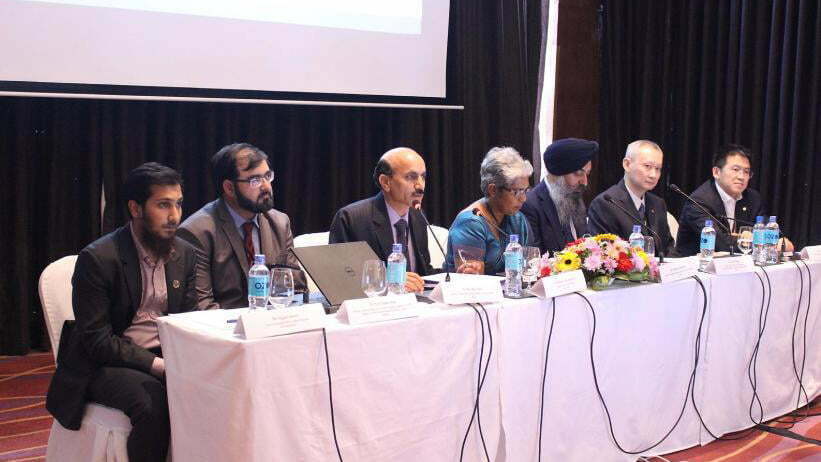Value of Recognised Qualifications for Migrant Workers – ILO Colombo Conference

The theme for the ILO (International Labour Organisation) meeting in Colombo, Sri Lanka, was on the importance of skills and qualification recognition for migrant workers.
The conference was attended by leading dignitaries from the Middle East and South Asia. As the construction expert, I spoke about the importance of communication between Employers’ Associations from countries of destination and the recruitment and skilling agencies from the countries of sourcing, such as India.
Although Migrant workers may hold some form of qualification, the question arises on their value. Will the skills and qualifications be recognised by employers? The norm to date has been that the majority of Gulf employees do not recognise the certification from any Indian entity. What they prefer to do is to conduct a trade test themselves to assess the skills and competencies of the Indian workers. Traditionally expectations have been low with employers excepting that some form of training and management would have to be undertaken on projects to uplift the performance and productivity of the imported Indian workforce.
One of the biggest challenges that needs to be addressed is understanding the difference between skills and competencies. Although it may seem during trade testing that workers have the required skills, our discussions with employers have shown that even recruiting experienced workers, productivity levels can be lower than expected. This is because they lack the required competencies and skills. In other words, the Indian workers, in this particular case, lack the ability to assess and plan specifically for each task to meet objectives.
Advice to conference attendees
- There should be collaboration between sending and receiving countries.
- Create a steering committee to oversee and manage the collaboration process.
- Develop a training curriculum which leads to mutual skills recognition.
- Workforce training providers in sending countries such as India should be licensed.
- Recruiters should not be allowed to enter the domain of skills training.
- Standardise the training and assessment procedures of the Indian workers.
- Employers to offer “on the job” training which leads to improved skills and local qualifications.
